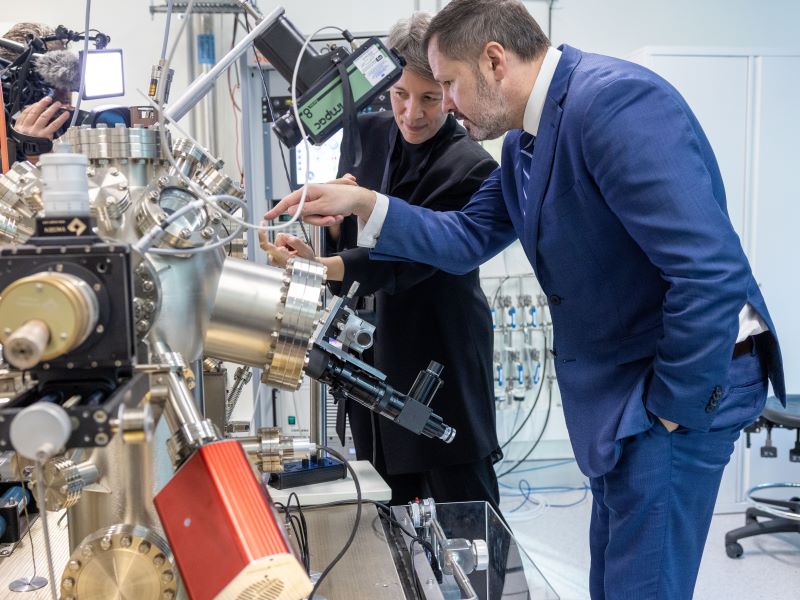Quantum computing trailblazer Professor Michelle Simmons has backed the new Labor government’s push to ensure IP-generating research is retained in Australia, saying local high-end manufacturing is the future of the economy.
Speaking on a panel at the launch of The Innovation Papers in Canberra on Thursday morning, Professor Simmons, who is the CEO of Silicon Quantum Computing, said she supports Industry Minister Ed Husic’s recent intervention over deals between Australian universities and large, foreign tech firms.
Mr Husic specifically requested details of the intellectual property arrangements as part of a partnership between four universities and Google’s new Quantum Artificial Intelligence Lab and assurances that this IP would be retained in Australia.

Professor Simmons said this is a positive move, and federal government support should be focused on companies conducting end-to-end operations locally.
“I really take to heart some of the things the minister has said – I absolutely believe in that,” Professor Simmons said.
“You want to make sure you have that high technology growth from within Australia. Not everyone can manufacture their own products here but it’s absolutely critical we support those Australian companies where they’re building, testing and manufacturing here. That’s where transformational change is.”
Professor Simmons said she has actively kept most of Silicon Quantum Computing’s operations within Australia.
“We realised when we set up the company that we wanted to control as much of the manufacturing and process here in Australia. When you’re developing hardware you need to have the full supply chain here so you can develop it in-house,” she said.
It’s “critical” that Australia bolsters its high-end manufacturing, Professor Simmons said.
“That’s making goods that are precise and high-value – transformational areas where Australia leads globally. That’s where we should get in – our fantastic research workforce and our young people are hungry for this,” she said.
“It’s really our responsibility to create that opportunity for them. People come from all over the world to work and live here, we shouldn’t underplay that.”
Advanced Robotics for Manufacturing Hub (ARM Hub) chair Professor Roy Green also spoke to the panel, pointing to the recently passed CHIPS and Science Act 2022 in the US, which pledges $US280 billion to science and research.
“If we think of Australia being 10 times smaller than the US that would imply we should be spending another $40 billion on research and innovation. To add another $40 billion might be a little ambitious but that’s where other nations are at. We have an enormous way to go,” Professor Green said.
“The question we ask government now is not, ‘is this too ambitious?’. It’s ‘is this ambitious enough?’”
It’s important that Australia focuses on its research translation and commercialisation woes too, Professor Simmons said
“Fundamentally we have to invest more funds into our translation. You can plot the tech readiness level and it’s good to look at all of those and rationalise where we put the funding. We have to get behind particularly the physical devices space, where Australia absolutely leads,” Professor Simmons said.
“So many Australian quantum companies are world-leading and they need the boost. Bringing industry, university and government together to help them across can only be beneficial for the whole country.”
Silicon Quantum Computer has trialed internally bringing together government, industry and university, something Professor Simmons said has been “incredibly powerful”.
“That has really allowed us to get to this latest breakthrough and it’s allowed us to see the way forward,” she said.
“One of the challenges now is getting all that world-leading research into products that benefit Australia and build the economy here. We’re in a unique position globally where we can bring those three sectors together to support our researchers to translate.”







